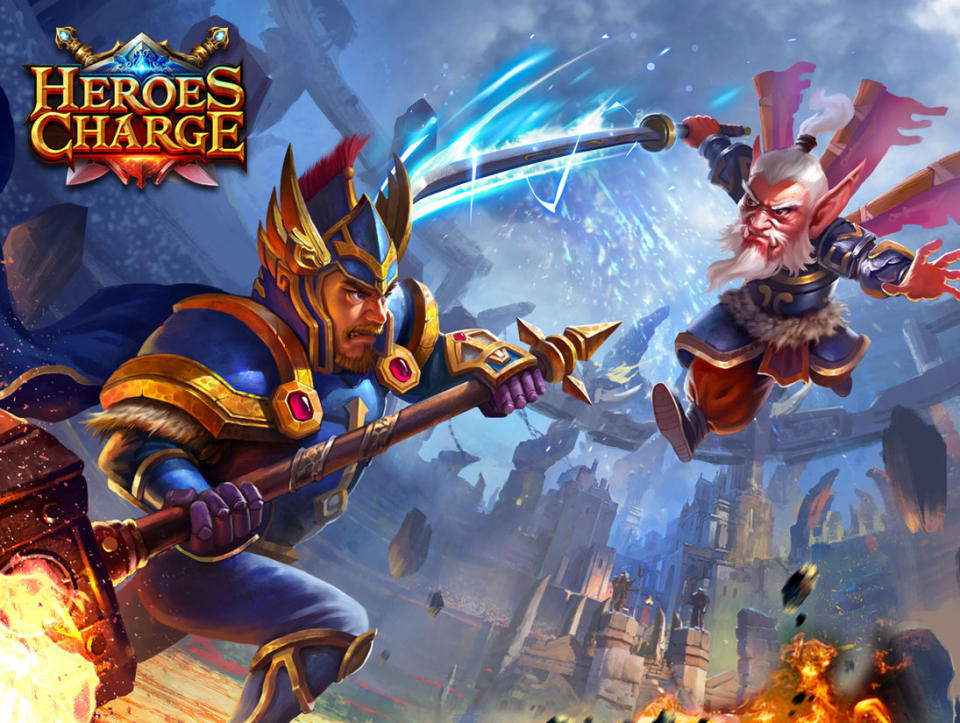Federal judge publishes ruling on Valve’s ownership of Dota rights, examines role of Warcraft III and League of Legends

California federal judge Charles R. Breyer has put out a paper (via The Hollywood Reporter) that examines a case where plaintiffs Blizzard and Valve have successfully won a minor victory over defendants Lilith Games and uCool in a complex copyright case. The report was filed on May 16 and centers on Dota 2 and its origins, bringing League of Legends and Warcraft III into the discussion. It’s lengthy, but well worth the read.
Lilith Games is the developer of mobile game DotA Legends (Dot Arena in English), while uCool developed Heroes Charge, also a mobile game. Blizzard and Valve are suing Lilith Games and uCool for these games under copyright claim. Developer uCool is hitting back with a request for a “partial summary judgement” against the case, arguing that Valve does not own the copyrights to the original DotA and its subsequent mods, thus making Valve’s copyright claim invalid.
It’s a complicated matter, and the 22 page report begins with a look at Blizzard’s Warcraft III World Editor. According to the report, Blizzard’s Warcraft III End User Licence Agreements only forbade players from creating and distributing custom-made mods and maps for commercial purposes. The EULAs did not credit any intellectual property created in the World Editor as property of Blizzard.
User Kyle “Eul” Sommer would use Warcraft’s III’s World Editor to build DotA in “late 2002.”
While the original DotA mod was popular, Eul eventually moved on in 2004. He made an announcement that he was leaving the project, and that it would be open source. He did not register any copyright for his creation, despite “believing that he owned what he had created,” according to the report.
Following this declaration, a number of parties became involved in the development of the DotA mod and its subsequent versions. The paper goes on to mention Meian, Madcow, and Stephen “Guinsoo” Feak for their development of DotA Allstars. This version of DotA drew input from several other contributors, including Stephen “Neichus” Moss, Syl-la-ble, Zetta, and Derek “Terrorblaze” Baker. The project was eventually handed to Neichus, who enlisted the now-famous IceFrog to help with the project. And while IceFrog had been involved with work on the map while Guinsoo was a “lead developer,” the newcomer would take on a leadership role in its creation and continue working on it.
In 2006, developer S2 Games allegedly got in touch with IceFrog. He joined the company as a developer, working on DotA-like game Heroes of Newerth.
According to the report, IceFrog sold “any and all of his rights in DotA and DotA Allstars” to Valve on May 24, 2010. Eul reportedly did the same thing “four months later”, and both of them went on to join Valve as employees. Guinsoo went on to sell any and all of his rights to DotA and DotA Allstars to Riot Games, with whom he took his next job. Riot Games later transferred these rights to Blizzard in September 2011.
It’s evident why the nature of the case is so complex. Lilith Games launched DotA Legends in 2014. That same year, uCool released Heroes Charge for mobile devices. Both Blizzard and Valve have sued Lilith and uCool, citing that both games infringe upon their copyrights of DotA, Dota Allstars, and Dota 2.

The court reportedly dismissed Blizzard and Valve’s original complaint as it needed “additional detail.” Blizzard and Valve then filed an amended complaint, which uCool allegedly moved to dismiss, citing that “neither Blizzard nor Valve had adequately pled ownership of the original DotA.”
The court denied this, opting for a motion for summary judgement. This is a request for the court to rule that the other party does not have a case because there are no facts.
The problem lies in Eul and IceFrog selling rights to Valve, which would violate Blizzard’s restriction on using Warcraft III’s World Editor for commercial purposes. Overall, uCool’s case was to ask why Valve should “capitalize on others’ ‘free work’.” The answer to this was that Valve had acquired copyrights from people who had spent years creating and growing “much of the DotA universe.”
The concluding paragraph reads:
“Help along the way does not drain those efforts of their considerable value. If helpers feel cheated, they may come to court. But theirs is not uCool’s case to make. For that and the foregoing reasons, the court DENIES the motion for partial summary judgement.”
Evidently, Valve and Blizzard have won this minor victory for now, and uCool’s argument has been ruled invalid. We’ll be keeping an eye on this case as it progresses. For more on the latest in Dota 2 news, check out our dedicated hub.
You can follow Zorine Te on her Twitter, @zorine


